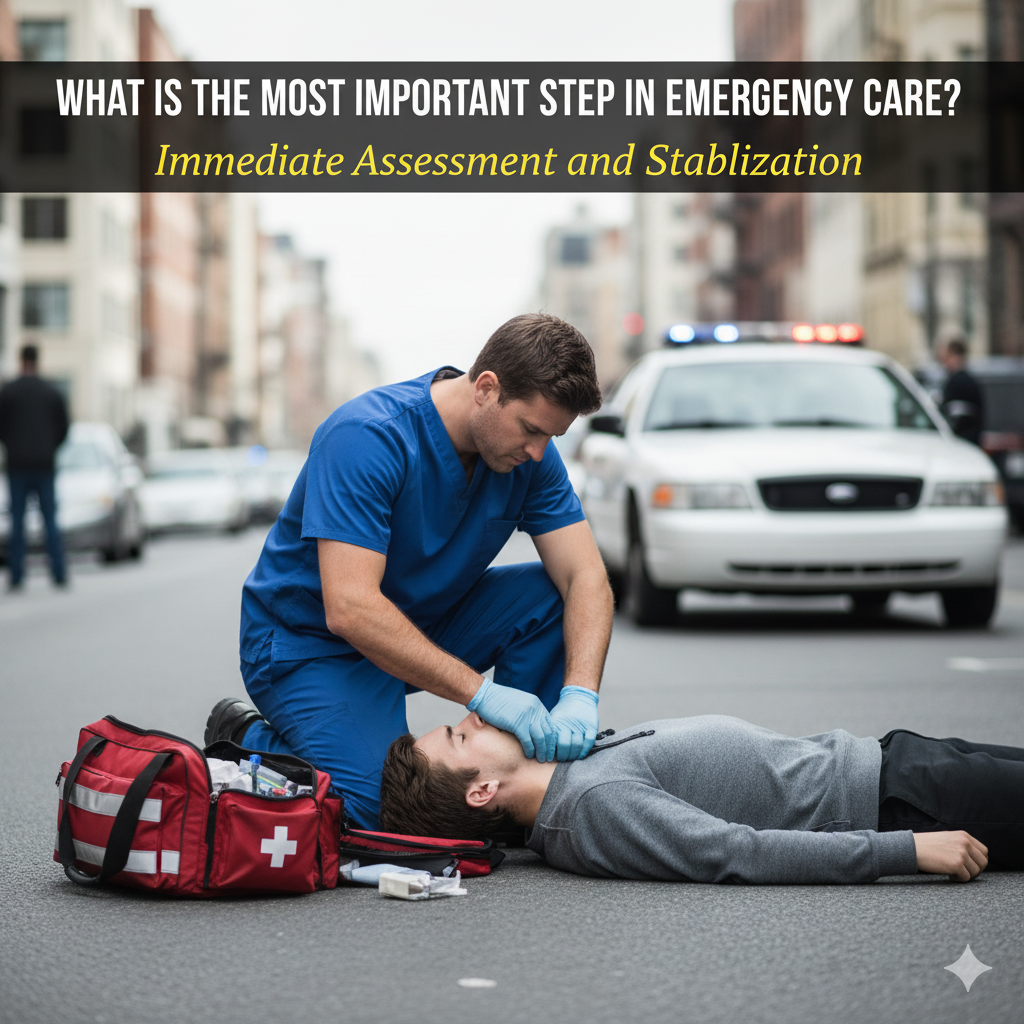The most important step in emergency care is calling for professional help immediately. The clock is ticking on all health emergencies. While knowing some very basic first aid and safety protocols is helpful, the one thing you can do that’s most valuable all ready to go is turn on emergency services as fast as you can. Professionals who have been trained can have the resources, the tools and most importantly, the drugs to save lives. We’ll qualify that with an asterisk: Sahara West Urgent Care, after all, is a strong proponent of the notion time and speed are essential when one faces an emergency.
Why You Need to Call for Help First
For someone with a life-threatening problem — chest pain, shortness of breath, heavy bleeding or passing out come to mind — delayed care can be unsafe. And even if you do know first aid. Then emergency medical personnel can provide advanced care on the way to the hospital. By calling 911 or medical professionals on the phone as quickly as possible. You’ll get help on the way and be able to take other necessary steps in your power to do things responsibly.
Time Is the Key Factor
Urgency is a key aspect in emergency medicine. For example:
- Heart attack: The sooner you are treated, the more heart muscle will be saved.
- Stroke: Lem and Urban aim for a better treatment to prevent disability. “Time is brain,” physicians like to say, and the faster the treatment, the more brain cells are saved.
- Severe bleeding: Quick application can prevent life-threatening blood loss and shock.
- Shortness of breath: Speaking of breathing, there is a relatively small window when it comes to medical intervention in which oxygen flow can be restored to prevent permanent damage.
By requesting help first, you minimize the time to arrival of trained responders at the patient — a time span that can be a matter of life or death.
Keep Your Cool and Observe the Scene
The best thing to do is remain calm while waiting for emergency services. Panic can cloud the ability to think clearly and offer help. Take a moment to:
- Check the scene for safety: Make sure it’s safe for both you and the patient in the vicinity.
- Look for reaction: Call the person or try a light shoulder tap.
- Check breathing and pulse: This will help you decide whether CPR or other supportive care is needed.
Keeping calm ensures that you can react to duty quickly. It provides vital details for emergency dispatchers and delivers proper first aid when necessary.
Provide Basic First Aid if You Are Trained
Simple first aid can help a patient while they call for help. And here are some of the more relevant ones:
- CPR: Begin CPR if the patient is not breathing or has no pulse, and you’re trained in it.
- Stop the Bleed: Apply continuous, direct pressure to wounds with a clean cloth or bandage.
- Help a choking victim: If an individual is unable to breathe, administer a series of abdominal thrusts.
- Recovery: If patient is unconscious but breathing, lay the person on their side to maintain an open airway.
Such measures can buy valuable time. But should never replace professional care.
Communicate Clearly With Emergency Responders
Because seconds count, be sure to give clear information when calling 911 or speaking to emergency medical workers:
- Exact location of the emergency
- Age of the patient and state of badness from illness in which the patient is
- When the symptoms began and what was going on
- Any first aid already given
Communicate ahead of time to responders so they can have the right equipment/treatment available.
Preventive Care Should Be an Element of Emergency Services
And while emergencies are not always foreseeable, there are some risk-reducing steps:
- Learn CPR and first aid.
- Keep emergency numbers easily accessible.
- Keep a first-aid kit in the house, car and at work.
- Keep chronic conditions at bay with scheduled check-ups.
- Teach family members how to respond in common emergency Care situations.
How will you know? Because if some event or person has the nerve to demand it, you can respond with an obnoxious lashing out in short order.
Why Sahara West Urgent Care Emphasizes Preparedness
We here at Sahara West Urgent Care know that emergencies can be stressful and unpredictable. Our urgent care professionals have experience treating a range of mild to moderate, but not life-threatening, injuries from cuts and sprains to coughs and colds. We work with the ambulances to contribute to their recovery and sometimes hospitalisation. We also help all members in the community become proactive, to know some basic emergency-response kills, and to know when it is time to seek professional help.
Conclusion
In an emergency Care in Las Vegas , life-saving protocol is to dial for professional help ASAP. Seconds matter now and trained responders can give life-saving care that first aid doesn’t provide. And, that difference in early prompt and bystander attention and tending might make a potential difference if help is delayed by minutes or longer. At Sahara West Urgent Care, we believe that being prepared and receiving timely fast and efficient care gives our patients the best chance of success. To schedule your appointment with the highest standard of care, visit Sahara West Urgent Care on our website, where you can also explore more informative blogs



